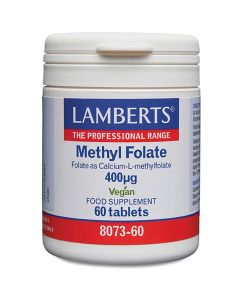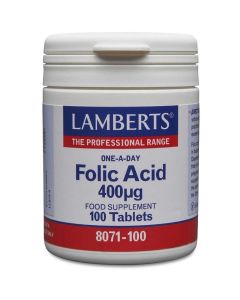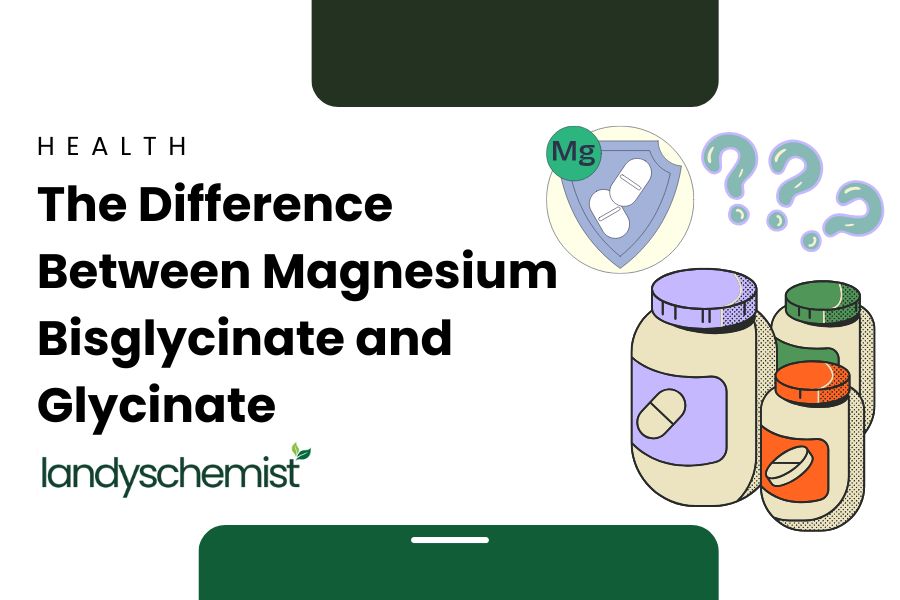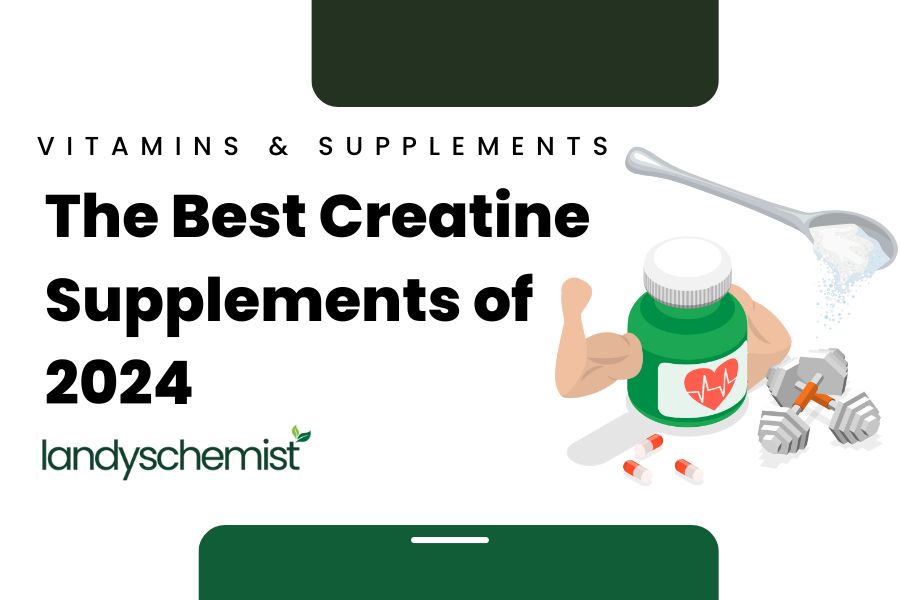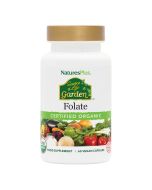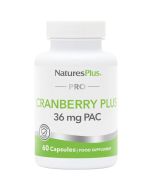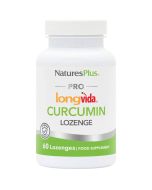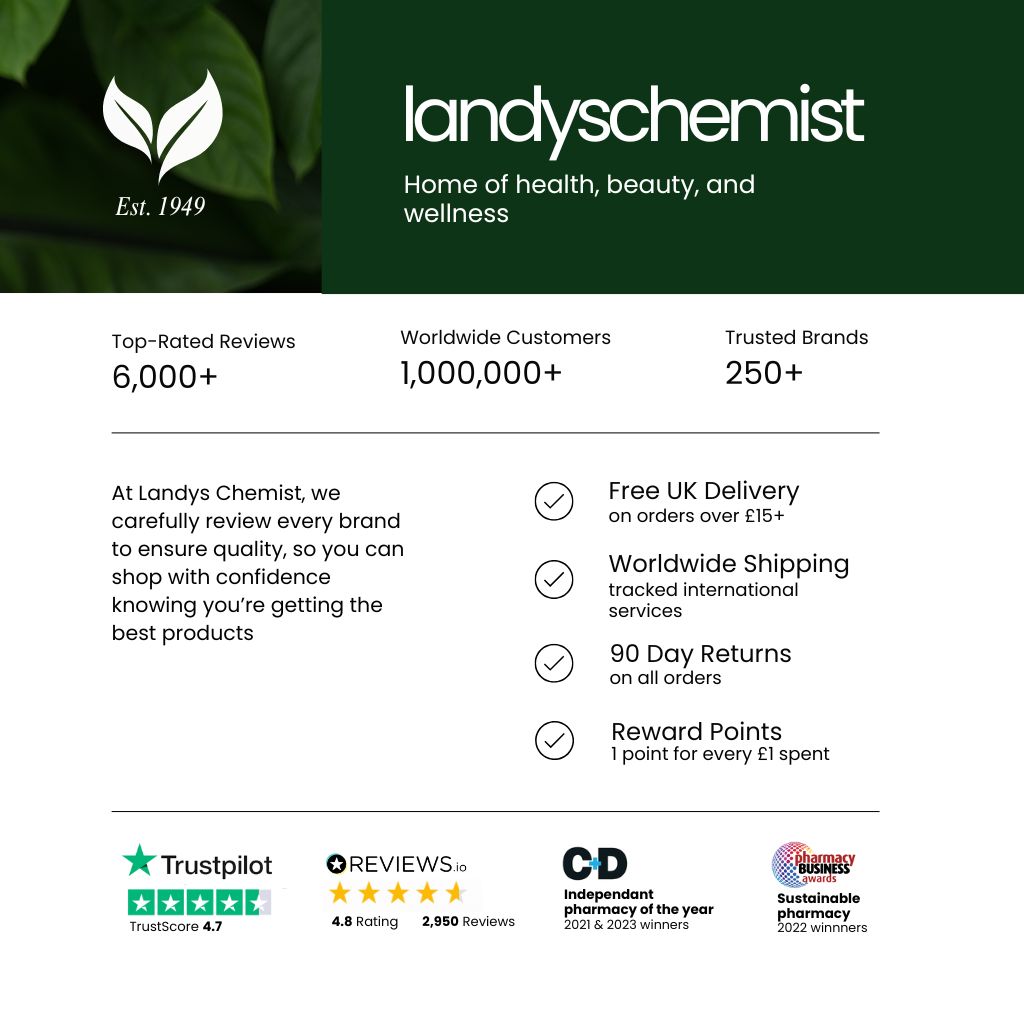
Is it better to take methyl-folate or folic acid?
11/06/2024 - By Saarah Mengrani, MSc Biotechnology, Health Expert at Landys Chemist
Folic acid and methyl folate (also known as 5-MTHF) are both forms of folate (Vitamin B9), an essential nutrient responsible for crucial functions in the body. Folate helps to support immunity, mental health and well-being, energy production, methylation, metabolism, and cell division. It is especially important for maternal and foetal health, reducing the risk of neural tube defects during pregnancy.
However, once folate or folic acid is consumed, it must undergo a conversion process in the liver to be metabolised into 5-methyltetrahydrofolate (5-MTHF), the active form, before entering the blood stream to be utilised by the body. This limitation means that methylated forms of folate, like methyl folate, can often be more beneficial.
Whilst the benefits of folate for pregnancy are well-documented and studied, there is often uncertainty about which form of folate is best to take. Should you opt for folic acid, the synthetic form, or methyl folate, the more biologically active form?
Why is folate beneficial for our health?
Folate, also known as Vitamin B9 is the naturally occurring form. It is integral to numerous bodily functions.
- DNA Synthesis and Repair: Folate is vital for DNA synthesis and repair, ensuring proper cell division and growth. This is particularly important during periods of rapid development such as pregnancy and infancy.
- Red Blood Cell Formation: Folate helps produce healthy red blood cells, preventing anaemia and ensuring efficient oxygen transport throughout the body.
- Neural Tube Defects Prevention: During pregnancy, adequate folate intake reduces the risk of neural tube defects (NTDs) like spina bifida and anencephaly.
- Mental Health Support: Folate is involved in neurotransmitter production such as serotonin, norepinephrine and dopamine, which is essential for mood regulation and cognitive function. Deficiencies are linked to depressive disorders.
- Homocysteine Management: Folate helps convert homocysteine to methionine, reducing elevated homocysteine levels which can be associated with cardiovascular diseases.
What is the best form of folate to take?
There are different forms of folate available in dietary supplements, with folic acid being the most common. Folic acid is the synthetic form of folate, found in many supplements and fortified foods, and is known for its stability, cost effectiveness and ability to help prevent neural tube defects.
However, there is a problem that arises and some individuals, especially those with genetic mutations, such as mutations in the MTHFR gene. These individuals may struggle to methylate and activate folic acid into its more bioavailable, methylated form, potentially leading to unmetabolized folic acid in the blood stream.
This means that folic acid may not be as easily absorbed by our body as methyl-folate. Methyl folate is the more bioactive form of folate that the body can use directly, ensuring better absorption and utilisation.
Why should you take methyl-folate instead of folic acid?
Methyl folate and folic acid are both forms of folate, but methyl folate can be particularly advantageous for certain individuals which may make it a preferrable option.
High Bioavailability
The body can sometimes struggle to convert folic aid into its active methylated form. This conversion is crucial because the active form, methyl folate (5-MTHF), is what is utilised by the body for essential functions and chemical reactions. Being metabolically active, methyl folate can be better absorbed and utilised by the body. This superior bioavailability ensures that the body receives the necessary folate without the need for additional metabolic conversions.
Active Form of Folate
Methyl folate also does not require metabolism before it is utilised and its bioavailability is not affected by metabolic defects, ensuring consistent and reliable absorption and utilisation.
Directly usable by the body
For individuals with compromised genetic efficiency, such as those with variations in the MTHFR gene, or when environmental factors affect the methylation process, it is more beneficial to take folate in its active form to ensure sufficient intake of folate that is being absorbed.
May be better tolerated
Additionally, methyl folate does not have a tolerable upper intake level, meaning that it is generally safe even at higher doses. It also does not mask vitamin B12 deficiency, a potential issue with high doses of folic acid.
Summary:
- Methyl folate vs. Folic Acid: Methyl folate is the active form of folate and does not require conversion by the body, making it more bioavailable and easier to utilise, especially for individuals with genetic mutations like MTHFR, who may struggle to convert folic acid into its active form.
- Health Benefits of Folate: Folate is crucial for DNA synthesis and repair, red blood cell formation, preventing neural tube defects, supporting mental health, managing homocysteine levels, and energy production.
- Advantages of Methyl folate: Methyl folate ensures better absorption and utilisation without the need for metabolic conversion, is directly usable by the body, and is generally safe even at higher doses without masking vitamin B12 deficiency.
Best Methyl Folate and Folic Acid Supplements:
The Lamberts Methyl Folate tablets provide the naturally active form of folate that is ready for the body to utilise. These small and easy to swallow tablets provide 400ug of methyl folate per tablet. This methylated form is beneficial for those that are unable to utilise standard folic acid efficiently. Just take 1 tablet daily.
The Lamberts Folic Acid tablets provide 400ug of folic acid per tablet. Just take 1 tablet daily to help support and guard againdst nutritional deficiencies.
Commonly Asked Questions:
What is the difference between methyl folate and folic acid?
Methyl folate is the active, more bioavailable form of folate known as 5-MTHF which can be utilised by the body efficiently, whilst folic acid is the synthetic form of folate and has lower bioavailability, requiring conversion in the body using enzymes to become active.
Methyl folate may be more suitable for individuals with MTHFR gene mutations or other genetic variations which affect folate metabolism. Folic acid may be less effective due to impaired conversion in those with MTHFR gene mutations.
Folic acid may generally be less expensive than methyl-folate however if your body is unable to convert it into another form to be absorbed, then less of the nutrient will be utilised by the body.
When should you start taking folate?
It is recommended to take folate for at least 12 weeks before conception (i.e. taking folate when you are trying for a baby) and during the first 12 weeks of pregnancy.
How much folate should you take per day?
400mcg of folate is recommended to be taken daily. If you are pregnant it is recommended to increase the dose to 600mcg.
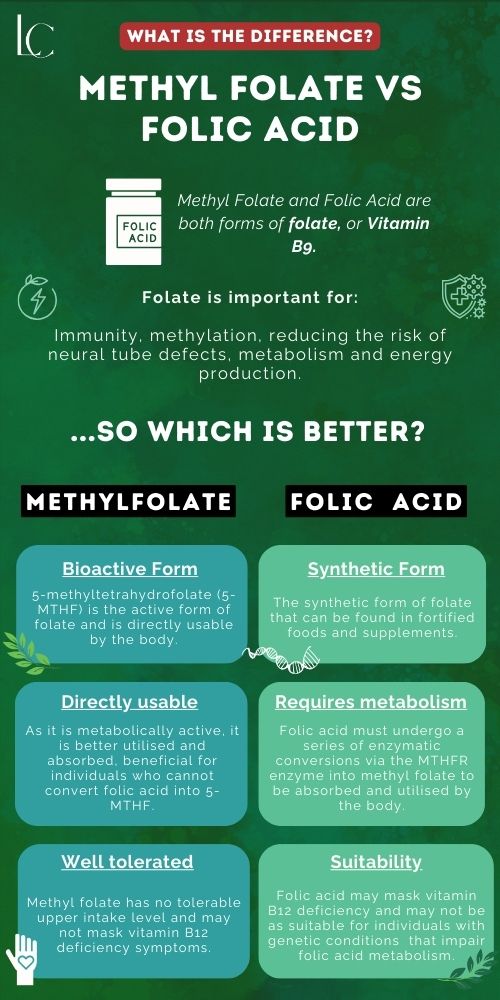
Disclaimer:
This article is for informational purposes only and is not a substitute for medical advice. Consult your doctor or healthcare provider before starting any supplements, treatments, or remedies. Ensure a varied and balanced diet and a healthy lifestyle before considering supplements. Supplements should not replace a balanced diet.
References:
- https://pubmed.ncbi.nlm.nih.gov/37960352/
- https://pubmed.ncbi.nlm.nih.gov/15189115/
- https://pubmed.ncbi.nlm.nih.gov/32845472/
- https://www.ncbi.nlm.nih.gov/pmc/articles/PMC3573592/
- https://www.ncbi.nlm.nih.gov/pmc/articles/PMC6961331/
- https://pubmed.ncbi.nlm.nih.gov/37686891/
- https://pubmed.ncbi.nlm.nih.gov/38728462/
- https://pubmed.ncbi.nlm.nih.gov/37526714/
- https://www.ncbi.nlm.nih.gov/pmc/articles/PMC7647581/
- https://www.ncbi.nlm.nih.gov/pmc/articles/PMC9380836/
- https://www.tandfonline.com/doi/full/10.3109/00498254.2013.845705
- https://www.sciencedirect.com/science/article/pii/S0753332221013287
- https://www.nhs.uk/medicines/folic-acid/how-and-when-to-take-folic-acid/
- https://pubmed.ncbi.nlm.nih.gov/23482308/
Free Delivery on all UK orders over £15

